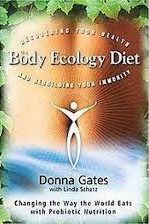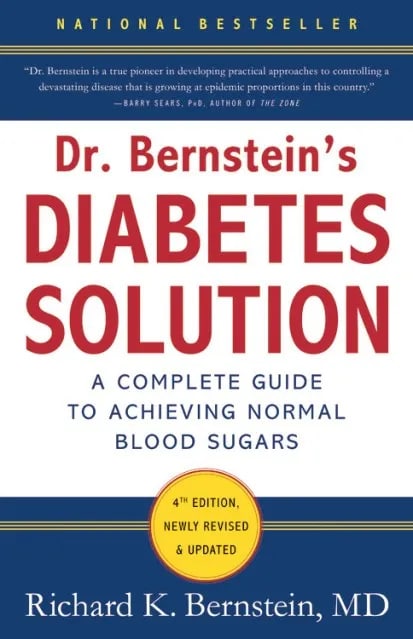In this blog post, nutritionist Kelly Dorfman tells us why breakfast is important and how to choose what’s for breakfast.
Manage Glucose Levels
Breakfast is the most important meal of the day! We’ve all heard that maxim.What is a “good” breakfast, and why is it so important, especially for kids with neurodevelopmental disorders and mood disorders? It’s all about glucose levels. Fasting for 10-12 hours between dinner and awakening in the morning triggers hypoglycemia (low blood sugar) and acidosis.
The Body Ecology Diet’s fourth principle is that too much acid encourages yeast overgrowth, viruses, parasites, and other unhealthy cells to thrive.
Prepare Children for Learning
Research now proves the importance of a good breakfast to prepare children for learning. One British study explored the performance of 19 children, aged six to seven years over a four-week period. The children ate meals offering similar calories but different glycemic loads. (Glycemic load is how much a given food causes blood sugar to rise sharply.) Two to three hours afterwards, those who ate a low-glycemic breakfast performed significantly better on the tests of memory and attention and showed fewer signs of frustration than those who ate a high-glycemic breakfast.
Other Purposes
Follow integrative medicine guru Majid Ali, MD’s guidelines for what to eat in the morning. Breakfast should:
- Overhydrate the body’s cells
- Maintain healthy, even glucose levels
- Tone bowel musculature and stimulate the emptying reflexes
- Provide support for detoxification
- Include restorative oils for brain function
- Offer raw materials for enzymatic action
- Avoid toxic trans-fats, simple sugars and carbohydrates
What to Eat?
One of the most frequently asked questions from families new to special diets is, “What can we eat for breakfast?” For anyone used to juice, cereal and toast, pancakes or bagels, this meal can be a real challenge, so here are some guidelines:
Think Protein
Protein in the morning is the best gift to give your child; seek pasture-raised and organic protein sources. Here are ideas for incorporating protein into this meal:
- Serve dinner foods
- Last night’s leftovers
- Turkey burger
- Lamb chop
- Salmon patty
- Other fish
- Scrambled eggs
- Lentil soup
- Bean burrito
- Nuts
- Seeds
- Any other meal that provides at least 10 grams of protein
Children age three to four require a minimum of 25 grams daily, while those five and up require 30 grams.
Think Dense Nutrition
Donna Gates, the developer of the Body Ecology Diet, suggests a breakfast soup made with fennel, broccoli, garlic and parsley, cooked in organic vegetable or chicken broth. Add chicken or other protein to the soup for an super-charged breakfast.
Think Quick and Easy
Look in the freezer section for good quality gluten-free and dairy-free waffles and pancakes. Up the protein with a nut-butter spread. Try gluten-free and dairy-free cereals made with amaranth or quinoa, and added flaxseeds. Make high-protein muffins; if necessary, use pre-made mixes from excellent suppliers.
Think Portable
Try some high protein gluten-free and dairy-free breakfast bars for a fast breakfast on days when time is a problem. A huge variety is available from good health food stores; sample several until you find some your children like.
Think EFAs (Essential Fatty Acids)
Add flax seed, hemp hearts, pumpkin seeds chia seeds or other high nuts or seeds to whatever you make because they enhance texture and add necessary essential fatty acids.
Think Drink
Use non-dairy milks with nuts, seeds, fruits and vegetables to make a quick, nutritious, colorful, drinkable breakfast.
In Summary
Experiment with ingredients. Rotate four or five breakfasts, never having the same breakfast two days in a row. Once your kids discover several acceptable alternatives, breakfast should be the best meal of the day!
About Kelly Dorfman MS LND
Kelly Dorfman is one of the world’s foremost experts on using nutrition therapeutically to improve brain function, energy and mood. Kelly’s special talent for integrating information from many sources and finding practical solutions has made her a popular speaker and workshop leader. She lectures extensively and is a member of Platform (formerly the National Speakers Association) and has been featured on numerous television programs including CNN’s American Morning.
Kelly’s award winning book, Cure Your Child With Food: The Hidden Connection Between Nutrition and Childhood Ailments (formerly known as What’s Eating Your Child) was given rave reviews by Publishers Weekly and the Washington Post.

As a go-to expert on nutrition issues, Kelly is frequently interviewed and quoted in the media. She has been featured in articles in The Wall Street Journal, Parade, Bethesda magazine, Living Without magazine, and the Huffington Post.
Kelly holds a master’s degree in nutrition/biology and is a licensed nutrition dietitian. She is a co-founder of Developmental Delay Resources, which has merged with Epidemic Answers. You can find out more about Kelly and her practice at kellydorfman.com
Still Looking for Answers?
Visit the Epidemic Answers Practitioner Directory to find a practitioner near you.
Join us inside our online membership community for parents, Healing Together, where you’ll find even more healing resources, expert guidance, and a community to support you every step of your child’s healing journey.




